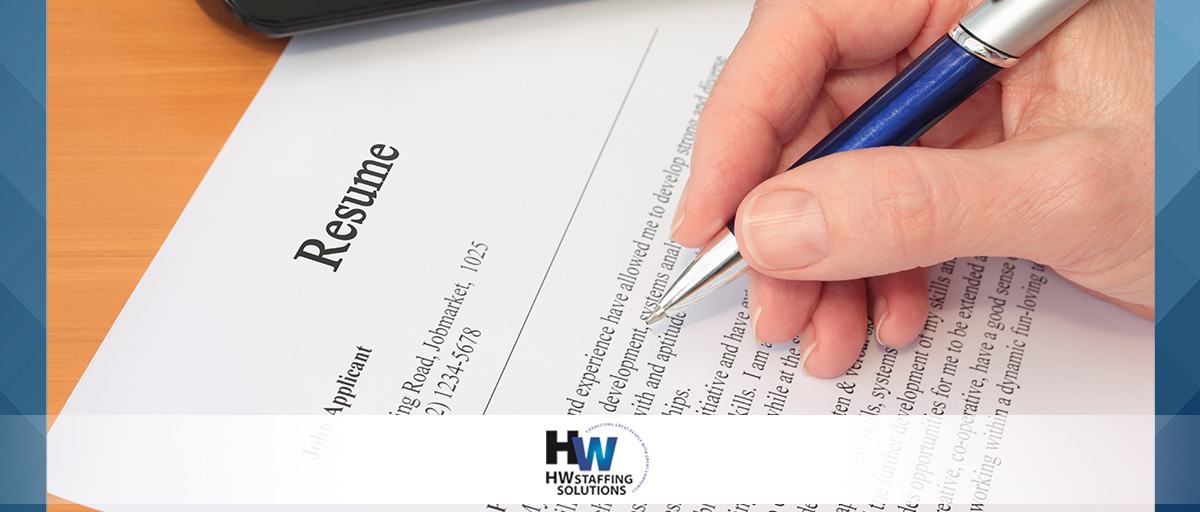What Are the Essentials for Your Resume?

Resumes should tell the employer about your experiences, skills, and work history. It’s the first step in screening candidates, so without a good resume, your job application will likely be ignored! You want to highlight items that demonstrate you’re a hard worker, you’re qualified, and you bring desirable skills to the job.
Here are the essential elements that your resume needs to have to get you noticed and secure an interview.
1) Format
Keep your margins readable, no smaller than 0.75” and be consistent with bolding, italics, size, and capitalization. Use a professional font and legible size, somewhere between 10-12 pt. If you print it, use high-quality bond paper in white or off-white.
2) Customization
Make your resume relevant to the job you’re applying for. Don’t list skills or experiences that are extraneous or inconsequential. Tailor it to match the expectations of the job posting as specifically as possible.
3) Accuracy
Avoid misspellings, grammatical errors, and typos. Re-read it at least twice before sending and allow another set of eyes to do the same. Be honest—don’t list qualifications and certifications you don’t have, these details are easy to verify and inaccuracies could damage your reputation.
4) Specificity
Use precise numbers, specific years of employment or graduation, the company name, and your job titles. Don’t be vague! Use specific action verbs when listing responsibilities and accomplishments. If you’ve received recognitions or important titles, list the full name of the distinction and the awarding institution.
5) Order of content
Put your resume in chronological order, from most recent to earliest positions last. It’s most likely that the most recent experiences are the most qualifying and most relevant.
6) Length
One or two pages is sufficient, as long as it’s easy to read. The length is usually dependent on the amount of experience you have. If you’ve been in the work force for a long time with many years of relevant experience, then you’ll probably need two pages.
7) Content
Instead of a resume objective, include a section at the top that briefly summarizes your professional qualifications and highlights what you can do for the employer. Under the titles of “Professional Skills” or “Core Competencies,” list your technical skills, knowledge, and experience. When you list your experience, pay more attention to results and achievements than simple job descriptions and responsibilities. For example, mention the fact that you increased sales, reduced expenses, or provided excellent service.
Under “Education,” list the institution, dates attended, and the degree or certification you received. Don’t forget to include and professional development, on-the-job training, and other continuing education courses you’ve taken.
8) Internet ready
Because most resumes are uploaded or emailed, make sure you use a font and formatting that converts easily to most computer programs. Avoid graphics or pictures that might not convert.



